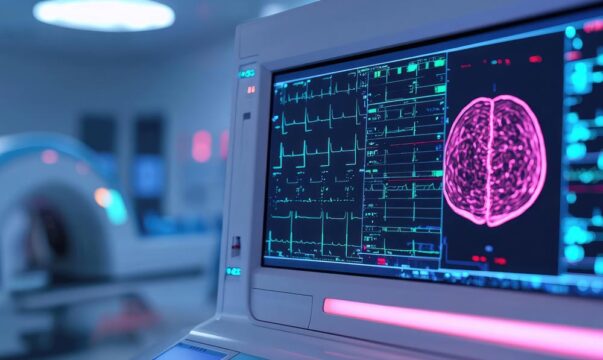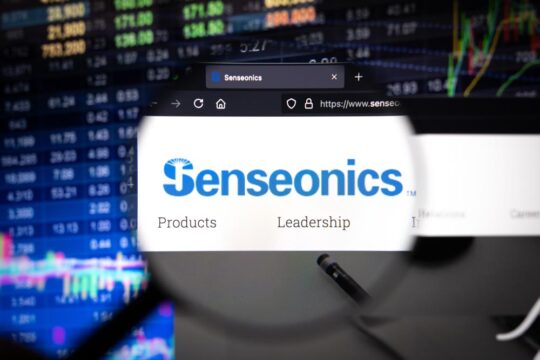Advertisment
BSH 2017 Debate: Identification and novel management strategies are essential for double hit lymphoma
Double-hit lymphoma has a poor prognosis and the best option for patients could be positive identification and treatment with novel agents, but there are arguments for and against …
As usual, the lymphoma debate at the BSH 2017 meeting proved to be both entertaining and enlightening. Dr Graham Collins (Oxford Cancer and Haematology Centre) and Dr Andrew McMillan (Nottingham City Hospital) capture the key arguments and highlights from the debate.
An audience poll before the debate showed that the majority of the audience supported the motion.
Speaking for the motion, Dr Beth Phillips argued that identification and treatment with novel agents is essential because double-hit lymphoma (DHL) is aggressive, has a poor prognosis and is inadequately treated with current regimens.
DHL has been defined by WHO as high-grade B-cell lymphoma (HGBL) that has rearrangements of the MYC gene and the BCL2 or BCL6 gene. It has recently been recognised as a diagnostic entity on its own. It is different from double expression lymphoma (DEL), she emphasised.
A study in 1999 identified DHL as “the most clinically aggressive lymphoma” and this has been confirmed by several later studies. This is probably because MYC is a ‘master regulator’ involved in the regulation of 15% all genes. Paradoxically, it also drives apoptosis but this function is blocked by BCL2 and BCL6.
At least 250 new cases of DHL can be expected in the UK each year. The incidence of primary CNS lymphoma and Burkitt’s lymphoma are similar and clinical trials in these conditions have led to improved outcomes. Positive identification of DHL is essential, according to international consensus and BSH guidelines, to enable accurate diagnosis and appropriate, up-to-date treatment. It also allows proper discussion with patients and provides more insight into disease biology and behaviour.
DHL does not respond well to R-CHOP – commonly achieving complete response (CR) rates of 40-55% and overall survival rates (OS) of 20-40%. More intensive regimens such as DA-EPOCH-R, R-CODOX-M/IVAC and hyperCVAD have been associated with longer progression-free survival (PFS) but not with improved OS. Furthermore, autologous stem cell transplantation (Auto-SCT) does not improve survival. DHL patients should be entered into clinical trials using novel or immune-based therapies, said Dr Phillips. It is likely that it will be necessary to use different agents to target several pathways, she added. These could include BCL2 inhibitors (e.g. venetoclax), BCL6 inhibitors and indirect inhibition of MYC.
Supporting the motion Professor Martin Dyer (Leicester) said that what was needed was a registry of UK cases, comprehensive genetic analysis, functional assessments and disease-specific adaptive trials of concurrent inhibition of BCL2 and MYC. Novel methods of monitoring response are also needed.
Speaking against the motion Dr Will Townsend argued that although DHL has been extensively studied, the rarity of the condition means that the majority of studies were retrospective or underpowered post-hoc analyses. Many were effectively lessons in “how not to do studies”.
MYC is an important proto-oncogene in many lymphomas. In DLBCL the MYC translocation is part of a complex karyotype often including p53 mutations. In addition, 90% of DHL are of the germinal centre subtype.
DHL is identified by demonstration of translocations (detected by fluorescence in situ hybridization (FISH)) whereas DEL is identified by protein expression. Common clinical features of DHL are age over 60 years and poor performance status. More than 50% of patients have bone marrow involvement and IPI scores above 4, so these are challenging patients with poor prognoses, said Dr Townsend.
Intensified treatment improves PFS but does not increase overall survival compared with conventional R-CHOP treatment. Patients experience much more toxicity and both DA-EPOCH-R and R-CODOX-M/R-IVAC are difficult to deliver and require prolonged hospitalisation. Auto-SCT does not increase OS.
Intelligent treatment strategies are required. DHL is a complex, difficult and manipulative cancer. Venetoclax is unlikely to be effective (on its own) because multiple pathways need to be targeted simultaneously. In practice, trials of multiple treatments could be difficult because the disease is rare and the patients are usually frail.
The economics of testing also need to be considered – one FISH analysis costs £350; there are 5000 cases of DLBCL each year and testing all of them would cost £1.8 million. A better approach would be to identify those in whom the cell of origin is germinal centre (GCB) and then check for MYC positivity by means of immuno-histochemistry. At this point, FISH analysis should only be performed if a positive result is likely to change the patient’s management, suggested Dr Townsend.
Dr Townsend ended with a plea to adopt a rational approach to testing, such as he described.
Supporting the case against the motion Dr Andrew Davies said that it is not necessary to identify DHL because there are no novel strategies. When something is difficult it is natural “to want to pull out the big guns” but MYC/BCL2 translocations are simply markers for poor prognoses, he said. The incidence of the disease is low (about 5% of patients with DLBCL) and identification demands heavy use of FISH. There is no point in intensifying treatment when it confers no survival advantage. Moreover, NICE advises FISH only in high-grade BCL but makes no recommendations for treatment. What really matters in baseline status and it would be most logical to base decisions on risk factors, he concluded.
An audience poll after the debate showed that the motion was carried but with a smaller majority than before.





